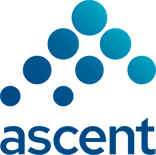Each week, the trade community watches the giant chess match between China and the United States, seeing who will make the next move, who will potentially "win" the match or if the game will end in a draw. Currently, the "game" is still in play with both sides moving pieces to win.
What's the Next Move in the Tariff Game?
Topics: Import, Tariffs, Trade, Compliance
CBP Promises Transparency and Commitment to National Security at 2019 Trade Symposium
Over 1,200 members of the trade community including importers, exporters, customs brokers, forwarders, carriers and various supporting businesses descended on Chicago July 22-24, 2019 to hear from the top leadership of the U.S. Customs and Border Protection (CBP) service. Speakers included Mark Morgan (Acting Commissioner of CBP), Kevin McAleenan (Acting Secretary of DHS) and Brenda Smith (EAC from the Office of Trade). Also in attendance were speakers from CBP, FDA, DOC and USTR.
Topics: Compliance, International
Customs Trade Partnership Against Terrorism (CTPAT)
Customs and Border Protection (CBP) recently held their annual CTPAT Conference in San Antonio, TX, with an attendance of over 1,500 CTPAT members – from importers and exporters to Canadian and Mexican foreign manufacturers, from highway carriers and sea carriers to brokers and freight forwarders. A sea of people converged upon the seventh largest city in the nation and CBP did not disappoint – providing valuable information regarding the updated Minimum Security Criteria as well as how security in our agriculture is vital to our economy.
Topics: Compliance, International
Tips for a Lower-Stress Travel Experience This Summer
One of the busiest travel seasons has arrived, with travelers preparing to take trips that will have them transiting through airports both domestically and internationally, as well as crossing various international borders and possibly interacting with different customs officials. Both U.S. Customs and Border Protection (CBP) and the Transportation Security Administration (TSA) share tips to help make those encounters go more smoothly and quickly.
Topics: Compliance, International
The Ocean Shipping Reform Act of 1998, which amended the Shipping Act of 1984, went into effect on May 1, 1999. This shipping act combined non-vessel operating common carriers (NVOCC) and ocean freight forwarders under one category labeled "ocean transportation intermediary" (OTI). An intermediary is defined as "a person who acts as a link between people in order to try to bring about an agreement."
Topics: Compliance, International
Binding Rulings: Take The Guesswork Out Of The Process
Each product that is imported into the United States and cleared through Customs and Border Protection (CBP) is required to be classified based on The Harmonized Tariff System of the United States. Those classifications are the responsibility of the importer (19 U.S.C. 1484), since they have firsthand knowledge of what the article is, what it is made of, how it is manufactured and the end use.
Topics: Compliance, International
November 2018 Compliance Circular: MTB H.R. 4318 A Break For Importers!
While the trade world has been focusing on the S232 and S301 remedy tariffs, the Miscellaneous Tariff Bill of 2018 has been quietly implemented. This has allowed for a temporary reduction or suspension of import tariffs paid on particular imported items into the United States.
Topics: Tariffs, Compliance, International
Tariff Talk: Making Sense Of The Effects Of S232 And S301 Tariffs On Duty And Bonds
In 2018, the S232 and S301 tariffs have increased duty payments to Customs and Border Protection (CBP) by up to 25 percent. Ultimately, this affects the daily duty payments to CBP and the subsequent billing from Ascent Global Logistics. We predict that duty outlay could be up to six times more per month than in months previous to the S232 and S301 tariffs.
Topics: Compliance, International
Create An Ethical Supply Chain - Be In The Know!
In recent years, the United States government and Customs and Border Protection (CBP) have taken a closer look at goods imported into the United States that are potentially made from forced labor or child labor. The goal of this increased scrutiny is to ensure the United States is involved in a fair and competitive trade environment.
Topics: Compliance, International
August 2018 - The Miscellaneous Trade Bill (MTB) of 2018
In May 2016, the American Manufacturing Competitiveness Act was enacted, which established a new process for “the submission and consideration of petitions for temporary duty suspension and reductions.”
Topics: Compliance, International










